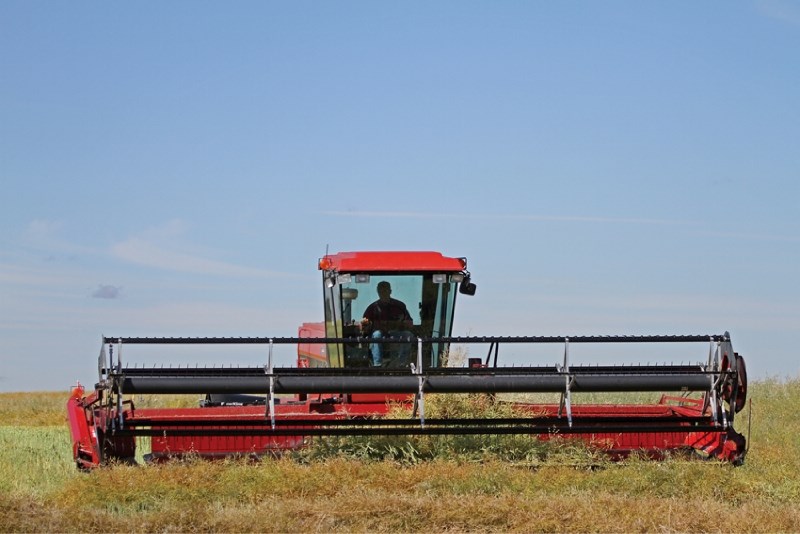A study released by two University of Alberta researchers has concluded newspapers are missing a key opportunity to partner with agricultural safety associations in preventing accidents.
Dejan Ozegovic and Donald Voaklander completed the research for their study — What We Are Not Talking About: An Evaluation of Prevention Messaging in Print Media Reporting on Agricultural Injuries and Fatalities — and said media can play a vital part in farm safety.
“We feel that print media has an opportunity to help,” said Ozegovic. “There’s a lot of people in the public health arena that are echoing the media to try.”
The two collated 409 articles across Canadian publications from January 2007 to September 2009 found in the Canadian Agricultural Safety Association’s (CASA) archives and found only 93 contained a prevention message relating to agricultural safety. Of those, only 39 had a strong message in its story.
A strong message, according to their methodology, is having a health and safety professional, police officer or a researcher as a voice in the story.
“That would provide actual tips for their own life,” said Ozegovic. “We found that, ironically, if it was occurring in an urban newspaper, or if it was an article about kids, it has twice the odds of containing any type of prevention message.”
Matt Sawyer farms near Acme and said accidents should be reported properly in order to prevent future incidents.
“I think it should be reported so certain types of accidents can hopefully be prevented by other people having the information,” said Sawyer. “If you’re more aware that something happened to another farmer, you might think ‘I better be careful.’”
However, Sawyer said farm safety must be implemented by the employer and people shouldn’t have to rely on newspaper articles for the information.
Tim Dietzler, Rocky View County’s agricultural fieldman, echoed those sentiments.
“Safety starts first at home,” he said. “Everybody has a requirement or an obligation to work as safely as possible.”
He did, however, admit newspapers could play an active role in safety.
“I think there’s an opportunity by newspapers to highlight other experts and have comments,” he said, adding schools can help educate, as well.
John Gleeson is the editor of the Mountain View Gazette in central Alberta and said it’s not as easy as simply making a few phone calls.
“Whether we can find people in time, or whether those people want to talk, makes all the difference,” said Gleeson. “It could be there’s only one mountie in the detachment that is there and feels comfortable talking on the subject.”
Gleeson also said when police issue press releases, it is often with “the barest of information,” which makes reporters’ jobs difficult.
“Police are very reluctant to tell you what may have caused the incident,” he said. “At that point, our ability to analyze is virtually limited.”
Ozegovic said many articles contained phrases such as “act of God,” “freak accident” and “mishap” when referring to a farm incident or death. That kind of language is counterproductive, according to Ozegovic.
“Particularly troubling is when these words were stated not only by farmers, but were also quoted from police personnel and other incident investigators,” the study states. “This contributes to the perpetuation of the myth that injury and fatalities in agriculture are ‘acts of God’ or ‘facts of life on the farm’ when, in fact, they are almost always preventable.”
Glen Blahey is an agricultural and health safety specialist with CASA and said every grim incident can have a silver lining if treated properly.
“Our hope is that in addition to reporting the tragic aspect… there could be a lesson learned,” he said. “When a serious incident is reported on, from a prevention perspective, it benefits the entire community to learn not only about the occurrence, but also what basic practices should be taken.”
The media is not at fault, according to Ozegovic, who sees this study as a chance to stop needless incidents and careless deaths.
“This isn’t a blame issue. We definitely don’t want to say that print media is dong a bad job,” he said. “We’re just looking to develop awareness for partnering with agricultural safety associations and the media. It has relevance to a major industry in Alberta.”
For more information on the study, visit www.casa-asca.ca



